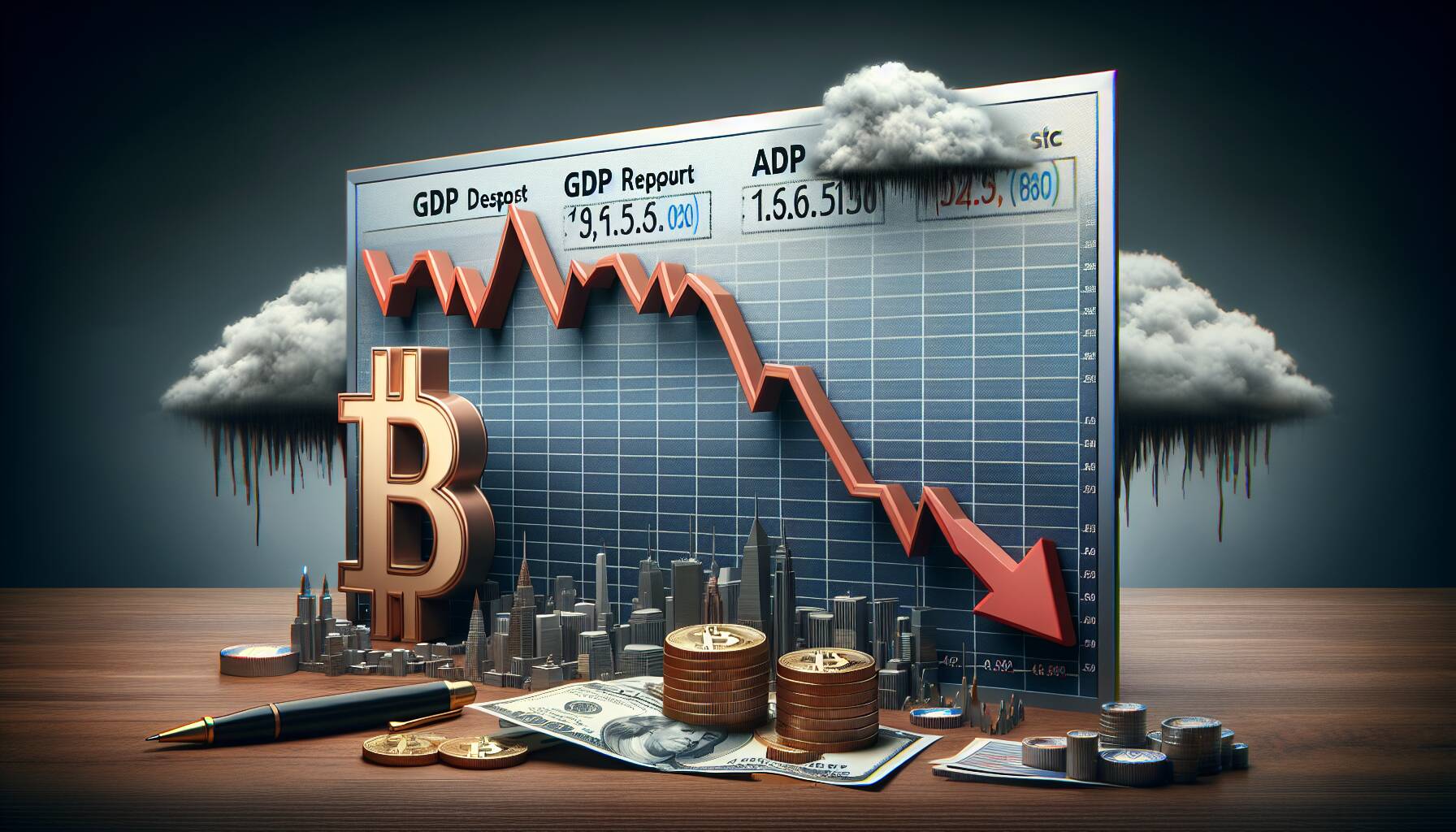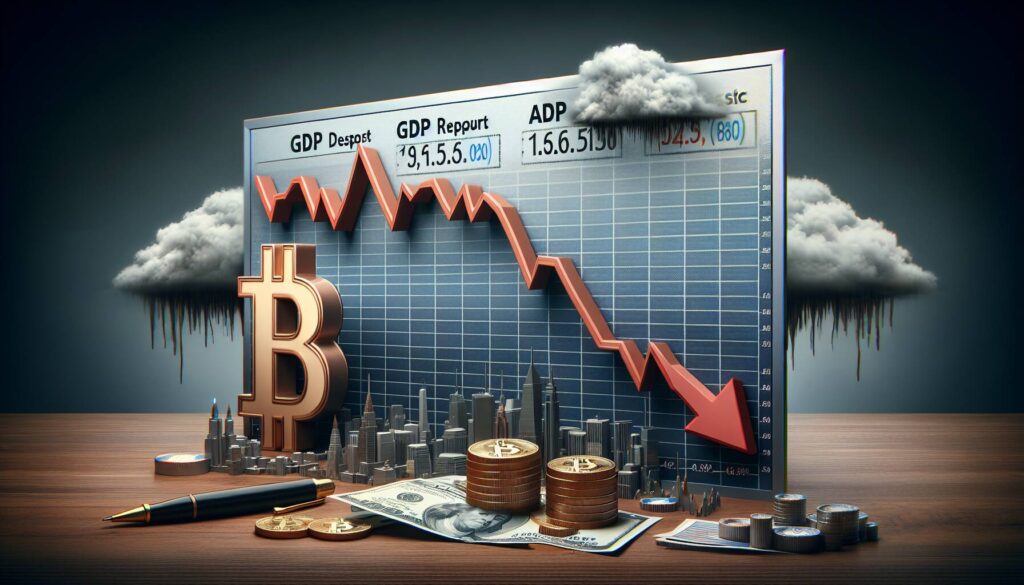The world of cryptocurrency is buzzing this week as Bitcoin’s price faces a downturn, reflecting broader market trends following several significant economic indicators. Data from the U.S. economy shows a contraction at a rate of 0.3% in the first quarter, marking the first decline in three years. This news has caused concern among investors, leading Bitcoin to dip alongside traditional stocks.
As reports circulate regarding the implications of the GDP data and concerns over job creation reflected in the ADP report, feels of uncertainty have spread throughout financial markets. Notably, former President Trump has pointed fingers at current President Biden, attributing the recent stock market decline to his policies just a year after taking credit for its rise. This political dynamic adds another layer of complexity to the current financial landscape.
“The economic slowdown and its ripple effects across various asset classes, including Bitcoin, highlight the interconnectedness of the traditional and crypto markets,” noted a market analyst.
While it’s vital to recognize the turbulence in both the cryptocurrency and stock markets, the situation remains fluid as more data is released and the implications of ongoing economic policies are assessed. Investors and observers alike will be closely watching how these developments impact Bitcoin and the broader crypto industry in the near future.

Bitcoin Price (BTC) News: Economic Impact Analysis
The latest news regarding the Bitcoin price and its correlation with the stock market highlights several critical factors affecting both markets and the broader economy. Here are the key points:
- Bitcoin Price Trend:
- Recent data indicates a decrease in Bitcoin’s price alongside stock market declines.
- U.S. Economy Contraction:
- The U.S. economy shrank at a rate of 0.3% in Q1, marking the first GDP pullback in three years.
- This contraction could lead investors to seek alternative assets, such as Bitcoin.
- Impact of Policy Changes:
- Trump’s abrupt policy shifts are being linked to the declining stock market and economic contraction.
- These shifts may create uncertainty, affecting both stocks and Bitcoin as investors reassess risks.
- Political Blame Game:
- Trump blames Biden for the downturn, illustrating how political narratives can influence market sentiment.
- The political climate may lead to heightened volatility in financial markets, impacting investment decisions.
- Correlation with Labor Market Data:
- The relationship between ADP employment data and stock performance could impact investor confidence and their approach to cryptocurrencies.
- Weak labor data may lead to increased interest in Bitcoin as a hedge against economic instability.
The interplay between economic indicators, political dynamics, and market responses can significantly influence individual investment strategies. Understanding these relationships may help readers make informed decisions in uncertain financial environments.
Bitcoin Price Trends Amidst Economic Uncertainty
The recent fluctuation in Bitcoin prices is deeply intertwined with the ongoing volatility in the stock market, as highlighted by reports following various economic indicators such as GDP and ADP data. The decline in Bitcoin aligns with losses in traditional equities, reflecting a broader investor sentiment shaken by recession fears and chaotic political rhetoric. While this correlation may imply a unified response to economic stress, it also raises questions about Bitcoin’s touted status as a ‘safe haven’ asset.
Looking at the competitive landscape, Bitcoin’s struggle mirrors the performance of several altcoins and stocks that are influenced by macroeconomic factors, particularly those strongly tied to consumer confidence and market stability. For instance, while some cryptocurrencies have attempted to sever their ties from traditional markets, Bitcoin continues to experience price drops that coincide with bearish trends in equities, suggesting a lack of differentiation in its investment appeal, despite its decentralized nature.
Additionally, the political narrative surrounding the economy adds another layer of complexity. As former President Trump pivots blame towards President Biden for recent economic downturns, it highlights an ongoing political divide that could further destabilize market sentiment. Investors seeking refuge in digital assets may find themselves hindered by the pervasive pessimism tied to these narratives, impacting the broader adoption and acceptance of Bitcoin.
Consequently, this scenario poses both opportunities and challenges. On one hand, Bitcoin enthusiasts and institutional investors might take this moment as a buy-the-dip opportunity, potentially benefiting from lower prices if the market stabilizes. On the other hand, new investors or those with less risk tolerance may be discouraged from entering the market during these tumultuous times, fearing further declines. Thus, the current Bitcoin landscape is shaped not only by its inherent qualities as a cryptocurrency but also significantly by the unfolding economic and political drama, making it a double-edged sword for potential investors.
















